Speaker: Geshe Lhakdor la
Venue: Ngari Institute
Date: 3rdSeptember to 6thSeptember
40 students comprising of locals, Tibetan and foreign nationals participated in 4 days residential retreat on the text “Seven Points of Mind Training” which covered depth about one’s mind with ven Geshe Lhakdor la, Director, LTWA, Dharamshala. Geshe Lhakdor la started the first session with the question- Do you want happiness? And, What is the meaning of human life? To which everyone confirmed that they want happiness and not suffering, so Geshe la mentioned that only by taming one’s mind can one attain true happiness. Without the right mental attitude, without attention to the mental factors, one cannot attain everlasting happiness. There he dwelled deeper into understanding happiness as different from superficial sensory pleasure. He clearly mentioned that “Most of the problems that we encounter today is the sign of starvation of mind”. The mind that is predominantly ruling us is ignorant, short sighted and foolish, for which the only counterforce is Bodhicitta and wisdom of Emptiness.
He also introduced the Four Noble Truths to the participant that is truth of suffering, truth of cause of suffering, truth of cessation of suffering and truth of path leading to suffering.
The mornings started with an hour long meditation session. Geshe la explained that meditation makes one’s mind repeatedly habituate, familiarize, focus on virtuous object like loving, kindness, compassion among others. In the process of learning before meditation he mentioned that it is important to study and reflect. Meditation is of two types – 1. Single pointed meditation and 2. Analytical meditation. Throughout the retreat he exposed the participants to single pointed meditation, meditation on compassion, meditation on happiness and meditation on negative emotions. He shared that meditation is one of the very effective way of training the mind, has tremendous amount of benefits. So, he encouraged participants to do it daily at least for 5 minutes.
And daily session started with setting up proper motivation of three parts- Refuge field, Bodhichitta field and Purpose of the session and preliminary prayers.
He then introduced the concept of self-grasping ignorance and self-centered attitude which is the source of all the suffering and the counter force for which are the Bodhicitta and wisdom of Emptiness. Ignorance, attachment and aversion are the three poison which is the source of all types of suffering. While talking about anger Geshe la made it very clear that anger not only harms others but also harms oneself in many ways and then gave participants an exercise to write about why is anger is good and why anger is bad or destructive to gain conviction among the participants.
In the next session, Geshe la described about the Buddha Nature that is the potential to attain maximum happiness, to attained Buddhahood which is present in each and every one of us including human beings, insects, animals and all other sentient beings. So, this is the reason that everyone has the potential to become Buddha, fully awakened if one goes through the teachings of the Buddha.
While explaining about Seven Points of Mind Training he first taught about preliminaries. He started with Guru devotion that is respect towards ones Guru, explaining about genuine Guru, Geshe la gave definition of Guru. That is Gumeans ignorance, rumeans remover, that is , who helps to dispel ignorance and frees one from suffering. Because one does not know the right path to attain maximum happiness so a Guru is very important.
While mentioning about preciousness of human birth, he explained about death as definite, uncertainty of time of death, and how only Dharma can help. By reflecting upon death being definite and uncertain it would bring urgency in one to study, reflect and meditate on Dharma.
Elaborating on what is ignorance? Geshe la explained that ignorance can be of two types one which is lack of knowledge and other which is misconception about the reality. Misconception of reality is seeing everything as objectively existent, independent, permanent. But the reality is everything is empty of objective existence and dependently originated.
Taking the concept of Bodhicitta deeper Geshe la elaborated Bodhichitta which means wish to become Buddha for the benefit of all sentient beings, which is unconditional love for the sentient beings. Bodhicitta is categorized into two types that is Conventional Bodhicitta and Ultimate Bodhicitta. Conventional Bodhichitta which is general Bodhichitta and Ultimate Bodhichitta means wisdom understanding Emptiness. He differentiated between loving kindness and compassion, loving kindness which means wish for happiness and endowed with source of happiness for others. And compassion means a genuine wish for others to be free from suffering and free from source of suffering. Compassion is of three types first focus on suffering of sentient beings, second focus on impermanent nature of sentient beings and third no independent existence and still grasping to it.
While speaking on preciousness of human life he spoke of 8 leisure and 10 endowments. Leisure is that you have time to practice Dharma and endowments the facilities to practice the Dharma. 8 leisure are free of wrong view, freed from taking birth in hell being, freed from taking birth as hell realm, freed from taking birth as hungry ghost, freed from taking birth in place where is no Buddha’s teaching present, freed from secluded place, freed from taking birth in place where you don’t believe in Dharma and freed from taking birth in deva/devis realm of longevity.
Explaining 10 endowments, 5 endowments are related to self and 5 related to others. 5 endowments related to self are that one born as human being, born in central place that is place having followers of Buddha, faculties being intact that is having ones organs healthy, not having wrong view and basic faith in Dharma. 5 endowments related to others are Buddha appearing on this earth, Buddha giving his teachings, teaching of Buddha being alive, actual practitioner of Dharma being present, supporters for Dharma. Geshe la stated that after having intact with these leisure and endowments still one does not practice Dharma is great unfortunate. So, one must reflect on these leisure and endowments everyday for meaningful life. Challenges to one’s practice can be laziness. Laziness can be of four types that is first not doing, postponing, laziness of looking down upon oneself, laziness attachment to inferior things.
He asserted development in wealth is like bee collecting the honey and taken by someone else. Wealth can be taken by someone else at any time but the internal happiness no one can take it from you. Confirming that dependence on external material for happiness can be limited but happiness by training your mind is eternal.
Introducing students to concept of Emptiness he cleared that Emptiness does not mean nothing exist but it means Emptiness of objective existence. That is everything is dependent on each other. Elaborating the dependent origination he explained about three levels of dependent origination that is dependence of effects on its cause, dependence of whole on its parts and dependence on mental designation or mental imputation.
Finally he covered the Seven Points of Mind Training, that is:
- Explaining the preliminaries as basis for the practice
- The actual practice, training in the awakening mind
- Transforming adverse circumstances into the path of Enlightenment
- The integrated practice of single lifetime
- The measure of having trained the mind
- He commitments of mind training
- The precept of mind training
The sessions were deeply appreciated and enjoyed by participants to getting basic introduction to understanding of realities. The participants actively participated during group discussion and question and answer sessions. Geshe la appreciated the questions.
At end of the session the learning, reflecting and meditation during retreat was dedicated for the development of healthy mind, positive emotion, long life of all the gurus and harmony in world.
On the last day Flowering Dharma thanked Geshe la for his precious talks, support and encouragement to the organization and all the participants and thanked Ngari Institute for providing hospitality and requested for such support even in coming futures as well. Geshe Thinley la (Co-director) and Gyen Yeshe la from Ngari Institute congratulated Flowering Dharma for their effort and promised to help in coming futures. Followed by Geshe la felicitating participants with khataks (white scarf) and certificate.
At last the memory was captured with a group photograph.






